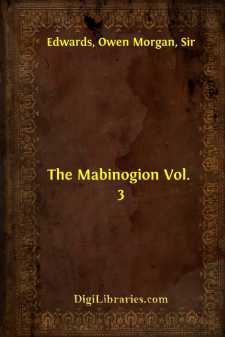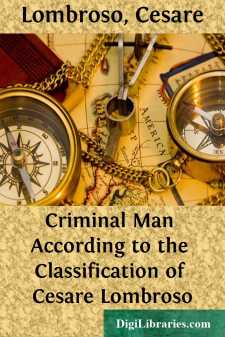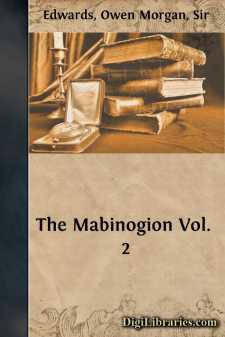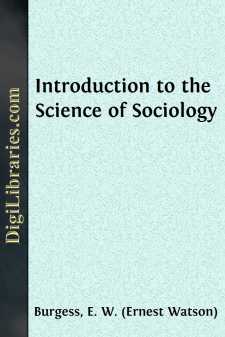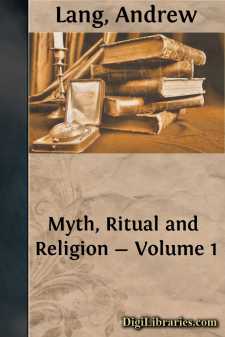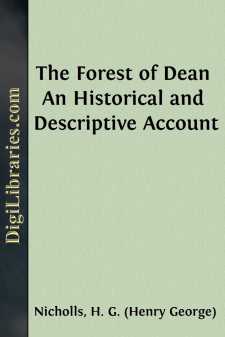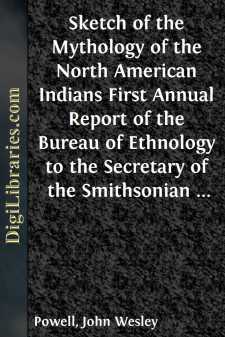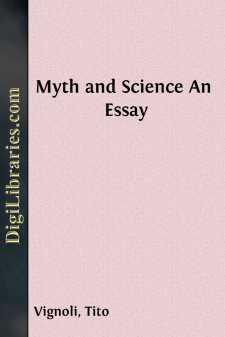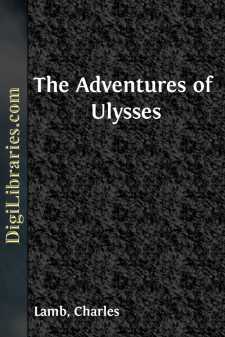Social Science
Social Science Books
Sort by:
PWYLL PRINCE OF DYVED. Pwyll, prince of Dyved, was lord of the seven Cantrevs of Dyved; and once upon a time he was at Narberth his chief palace, and he was minded to go and hunt, and the part of his dominions in which it pleased him to hunt was Glyn Cuch. So he set forth from Narberth that night, and went as far as Llwyn Diarwyd. And that night he tarried there, and early on the morrow he rose...
more...
by:
Cesare Lombroso
INTRODUCTION BY CESARE LOMBROSO [Professor Lombroso was able before his death to give his personal attention to the volume prepared by his daughter and collaborator, Gina Lombroso Ferrero (wife of the distinguished historian), in which is presented a summary of the conclusions reached in the great treatise by Lombroso on the causes of criminality and the treatment of criminals. The preparation of the...
more...
GERAINT THE SON OF ERBIN. Arthur was accustomed to hold his Court at Caerlleon upon Usk. And there he held it seven Easters, and five Christmases. And once upon a time he held his Court there at Whitsuntide. For Caerlleon was the place most easy of access in his dominions, both by sea and by land. And there were assembled nine crowned kings, who were his tributaries, and likewise earls and...
more...
by:
Eliot Gregory
There existed formerly, in diplomatic circles, a curious custom, since fallen into disuse, entitled the Pêle Mêle, contrived doubtless by some distracted Master of Ceremonies to quell the endless jealousies and quarrels for precedence between courtiers and diplomatists of contending pretensions. Under this rule no rank was recognized, each person being allowed at banquet, fête, or other public...
more...
PREFACE The materials upon which this book is based have been collected from a wide range of sources and represent the observation and reflection of men who have seen life from very different points of view. This was necessary in order to bring into the perspective of a single volume the whole wide range of social organization and human life which is the subject-matter of a science of society. At the...
more...
by:
Andrew Lang
PREFACE TO NEW IMPRESSION. When this book first appeared (1886), the philological school of interpretation of religion and myth, being then still powerful in England, was criticised and opposed by the author. In Science, as on the Turkish throne of old, "Amurath to Amurath succeeds"; the philological theories of religion and myth have now yielded to anthropological methods. The centre of the...
more...
CHAPTER I.a.d. 1307–1612. Origin of the name “Dean”?—The “Buck Stone,” and other Druidical remains—“The Scowles,” &c., and other ancient iron-mines, worked in the time of the Romans—Symmond’s Yat, and other military earthworks—Domesday Book, and investment of this Forest in the Crown—William I., and probable date of Free Miners’ Franchise—Castle of St. Briavel’s...
more...
THE GENESIS OF PHILOSOPHY. The wonders of the course of nature have ever challenged attention. In savagery, in barbarism, and in civilization alike, the mind of man has sought the explanation of things. The movements of the heavenly bodies, the change of seasons, the succession of night and day, the powers of the air, majestic mountains, ever-flowing rivers, perennial springs, the flight of birds, the...
more...
by:
Tito Vignoli
CHAPTER I. THE IDEAS AND SOURCES OF MYTH. Myth, as it is understood by us, and as It will be developed and explained in this work, cannot be defined in summary terms, since its multiform and comprehensive nature embraces and includes all primitive action, as well as much which is consecutive and historical in the intelligence and feelings of man, with respect to the immediate and the reflex...
more...
by:
Charles Lamb
CHAPTER ONE The Cicons.—The Fruit of the Lotos-tree.—Polyphemus and the Cyclops.—The Kingdom of the Winds, and God Aeolus's Fatal Present.—TheLaestrygonian Man-eaters. This history tells of the wanderings of Ulysses and his followers in their return from Troy, after the destruction of that famous city of Asia by the Grecians. He was inflamed with a desire of seeing again, after a ten...
more...


